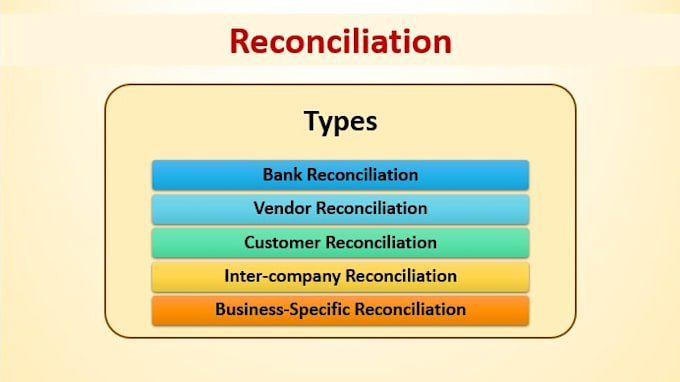Renting vs. Buying: The Strategic Advantages of Apartment Living
Rent vs. Buy: the strategic advantages of apartment living
The decision between rent an apartment and buy a home represent one of the virtually significant financial and lifestyle choices many people face. While conventional wisdom oftentimes push the narrative that homeownership represents the ultimate financial goal, renting offer numerous advantages that make it the superior choice for many individuals and families. This comprehensive analysis examine the key benefits of rent apartments compare to buy homes.
Financial flexibility and freedom
Lower upfront costs
Rent an apartment typically require importantly less capital to get start. While home purchases demand substantial down payments (frequently 5 20 % of the purchase price ) renting commonly require exclusively the first month’s rent, a security deposit, and mayhap the last month’s rent. This lower barrier to entry preserve your savings and keep capital available for other investments or emergencies.
For example, a modest $300,000 home with a 10 % down payment require $$30000 upfront, plus closing costs that can add thousands more. In contrast, move into an apartment might require $ $300 $5,000 total – a fraction of the homhome buyingsts.
Predictable monthly expenses
Renters enjoy more predictable monthly housing costs. Your rent remain fix for the lease term, typically 12 months, allow for precise budgeting. Homeowners face variable expenses include:
- Fluctuate property taxes
- Homeowners insurance premiums
- Unexpected maintenance and repairs
- Potential special assessments (for condos / hhas))
- Variable utility costs for larger spaces
This predictability help renters maintain financial stability and avoid the surprise expenses that oftentimes plague homeowners.
No maintenance or repair costs
When rent, the landlord bear responsibility for maintenance and repairs. This arrangement eliminate unexpected financial burdens like replace a $10,000 roof, a $$5000 hvHVACystem, or tied smaller repairs that apace add up. The average homeowner spend 1 4 % of their home’s value yearly on maintenance – a significant expense renters avoid alone.
No property tax obligations
Renters escape direct property tax payments, which represent a substantial ongoing expense for homeowners. Property taxes can amount to thousands of dollars yearly and oftentimes increase over time. While landlords factor these costs into rent calculations, the direct obligation and administrative burden fall on them, not the tenant.
Protection from market downturns
Rent insulate you from real estate market volatility. When property values decline, homeowners may face negative equity situations where they owe more than their home is worth. This scenario can create financial strain and limit mobility. Renters maintain distance from these market fluctuations, preserve their financial flexibility disregarding of housing market conditions.
Enhanced lifestyle and flexibility
Geographic mobility
Renting provide unparalleled geographic flexibility. When your lease end, you can relocate for career opportunities, lifestyle preferences, or personal reasons without the complications of sell property. This mobility proves especially valuable in today’s dynamic job market where career advancement oftentimes require relocation.
Homeowners face significant barriers to mobility, include:
- The time consume home selling process (oftentimes 3 6 months )
- Potential losses if sell during market downturns
- Real estate commission fees (typically 5 6 % of sale price )
- The emotional and practical challenges of leave a permanent home
Access to premium locations
Renting oftentimes provide access to desirable neighborhoods where purchasing would be prohibitively expensive. Many urban centers, entertainment districts, and waterfront areas offer rental opportunities at fractions of what mortgage payments would cost in the same locations. This advantage allow renters to experience premium locations without premium purchase prices.
Amenities without additional investment
Modern apartment complexes oftentimes include amenities that would require significant additional investment for homeowners:
- Fitness centers with professional equipment
- Swimming pools and hot tubs
- Community spaces and entertainment areas
- Business centers and conference rooms
- Package receive services
- Security systems and personnel
These amenities enhance quality of life without require personal investment in equipment, maintenance, or ongoing operational costs.
Simplify living
Apartment living typically involves less space than single family homes, encourage a more minimalist lifestyle with several benefits:
- Lower utility costs
- Reduced time spend clean and maintain living spaces
- Less accumulation of unnecessary possessions
- Smaller environmental footprint
This simplified approach to housing oftentimes translate to more time and resources for experiences instead than possessions.
Financial opportunity costs and investment alternatives
Capital deployment flexibility
The capital preserve by rent alternatively of buy create opportunities for potentially more lucrative investments. While real estate has historically appreciated at roughly 3 4 % yearly( with significant regional variations), other investment vehicles frequently deliver superior returns:
- Stock market investments (sS&P 500historical average of 10 % before inflation )
- Retirement accounts with employer matching
- Business ventures and entrepreneurship
- Alternative investments like rats that provide real estate exposure without direct ownership
This investment flexibility allow renters to build wealth through channels potentially more align with their skills, interests, and risk tolerance than direct property ownership.
Avoid opportunity traps
Homeownership can create opportunity traps when significant portions of net worth become concentrated in a single, comparatively illiquid asset. This concentration can limit:
- The ability to pursue entrepreneurial ventures
- Capacity to invest in education or skills development
- Financial resilience during economic downturns
- Freedom to make major life transitions
Renting help maintain financial diversification and preserve optionality for future decisions.
Reduced stress and responsibilities
Maintenance freedom
Beyond the financial aspects, rent eliminates the time commitment and stress associate with property maintenance. Homeowners spend an average of 7 10 hours monthly on maintenance tasks, time renters can allocate to careers, relationships, hobbies, or relaxation.
When systems fail or problems arise in rental properties, tenants merely contact property management quite than research solutions, vetting contractors, supervise repairs, and manage the associate costs.
Reduced decision fatigue
Homeownership bring endless decisions about maintenance, improvements, and property management. Each decision require research, comparison shopping, and commitment. Renters avoid this decision fatigue, preserve mental energy for other priorities.
Lower insurance requirements
Renters insurance typically cost $15 30 monthly, well less than the $$100250 monthly premiums common for homeowners insurance. This difference represent both financial savings and reduce administrative burden.

Source: dwelly.ca
Ideal scenarios for choose rental housing
Career focus individuals
People prioritize career advancement, particularly in industries where relocation opportunities arise oftentimes, benefit from the flexibility renting provide. The ability to pursue promotions or new positions without housing constraints can accelerate career trajectories and earn potential.
Life transition periods
Renting offer particular advantages during major life transitions:

Source: movingsolutions.in
- Recent graduates establish careers
- Fresh divorce or separated individuals restructure finances
- Empty esters downsize from family homes
- Individuals relocate to new cities or regions
These transition periods benefit from the flexibility and reduce commitment renting provide.
Financial rebuilding phases
Those rebuild credit, establish emergency funds, or recover from financial setbacks oftentimes find rent more compatible with financial recovery plans. The lower entry costs and predictable expenses facilitate budget adherence and systematic saving.
The environmental and social considerations
Reduced environmental impact
Apartment live typically generate a smaller environmental footprint compare to single family homes through:
- More efficient heating and cooling of share spaces
- Reduced land use per resident
- Lower water usage and resource consumption
- Less material require for construction per housing unit
For environmentally conscious individuals, these efficiency advantages represent meaningful benefits.
Community engagement
Apartment communities oftentimes facilitate social connections through:
- Community events and gatherings
- Share amenity spaces that encourage interaction
- Proximity to neighbors with diverse backgrounds and experiences
These community aspects can combat isolation and build valuable social networks, especially beneficial for newcomers to areas or people live lone.
Make the decision: key considerations
Timeframe analysis
The anticipated duration of residence importantly impact the rent versus buy calculation. Mostly, shorter timeframes (under 5 7 years )favor rent due to the high transaction costs associate with buy and sell homes. Calculate your “” eakeven period ” ” e on local market conditions help quantify this consideration.
Lifestyle priorities assessment
Honest assessment of lifestyle priorities should guide housing decisions. If you value flexibility, minimal maintenance responsibility, amenity access, and location over customization, build equity, and stability, rent likely aligns advantageously with your priorities.
Total cost comparison
When compare housing options, consider all costs associate with each choice:
Rental costs include:
- Monthly rent
- Renter’s insurance
- Any utilities not include in rent
- Potential rent increases over time
Homeownership costs include:
- Mortgage payment (principal and interest )
- Property taxes
- Homeowners insurance
- HOA or condo fees (if applicable )
- Maintenance and repairs (typically 1 4 % of home value yearly )
- Opportunity cost of down payment funds
- Transaction costs for buy and finally sell
This comprehensive comparison oftentimes reveal that renting prove more economically advantageous than conventional wisdom suggest.
Conclusion: the strategic advantage of renting
While homeownership remain appropriate for many situations, rent apartments offer distinct advantages that make it the superior choice for numerous individuals and families. The financial flexibility, reduced responsibilities, enhance lifestyle options, and investment alternatives available to renters create compelling value propositions that challenge the traditional” renting is throw money aside ” arrative.
By cautiously analyze your financial situation, lifestyle preferences, career trajectory, and time horizon, you can determine whether renting’s advantages align with your personal circumstances and goals. For many, the freedom, flexibility, and financial opportunities renting provide represent not exactly a temporary housing solution, but a strategic long term approach to optimize both finances and quality of life.



